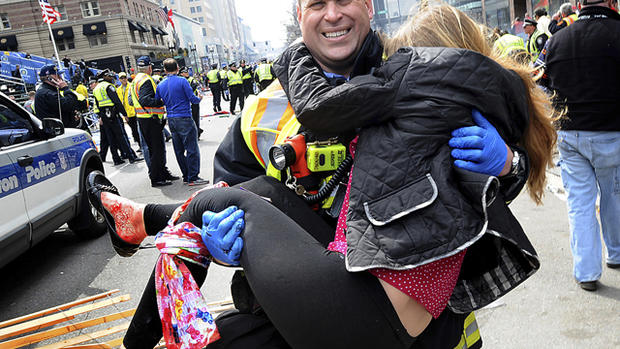Boston bombings, West, Texas, plant explosions: How emergency response has evolved to help
(CBS News) The capture of Boston Marathon bombing suspect Dzhokhar Tsarnaev on Friday night capped a week of intense search-and-rescue by first responders -- not only in the Boston area, but in Texas as well.
What we've seen after the Boston attacks and the fertilizer plant explosion in West, Texas, makes one thing clear: hard-learned lessons from 9-11 and Hurricane Katrina have made a difference. Many in law enforcement and emergency management say we're now much better equipped to react when bad things happen.
So just what have we learned since 9-11 -- and what still needs improving?
Atul Gawande, a surgeon at Brigham and Women's Hospital in Boston and a professor at the Harvard School of Public Health, said from Boston on "CBS This Morning: Saturday," the hospitals' drills helped prepare them for the aftermath of Monday's blasts. "People just seemed to know the dance moves," he said.
"When the bombs went off, the runners medical tent -- just for their dehydration -- the doctors there immediately switched to becoming a triage operation, prepositioned EMS vehicles were able to get people to the hospital in less than 20 minutes. That sense that people have of sort of springing into action came because of 10 years of experience with war, people going to Haiti, Banda Aceh tsunami disaster, even the action at Aurora (Colo. shootings)."
Gawande is also a staff writer at New Yorker magazine, which this week carried his article, "Why Boston's Hospitals Were Ready."
As for where we're still vulnerable as a country, R. David Paulison, former director of the Federal Emergency Management Agency -- now a senior partner at Global Emergency Solutions, a consulting firm -- said, "the vulnerabilities in the system are simply not being prepared."
"What we saw on September 11th, 2001, (and) in Katrina is a lack of coordination between the entities. Those two watershed events have really sent a message to first responders around the country, and that was especially clear in Boston.
"We saw it stay a coordinated event between police, fire, EMS, and hospital systems," Paulison explained. "Those groups had actually trained together, worked together, exercised together. And it also thinking about a unified command system where everyone is in the same place, sharing information, everyone knows who's responsible for what. Just an outstanding response to a very significant event. We in the first-responder community are very proud of Boston and what they did."
In war, Gawande noted, 10 percent survival is a "huge accomplishment." He remarked, "Folks here have saved everybody who arrived alive. That accomplishment was dependent on both training, but also the fact that we replaced pre-9/11 naivete with post-9-11 sobriety. People are thinking about what to do and it's part of our training now."
